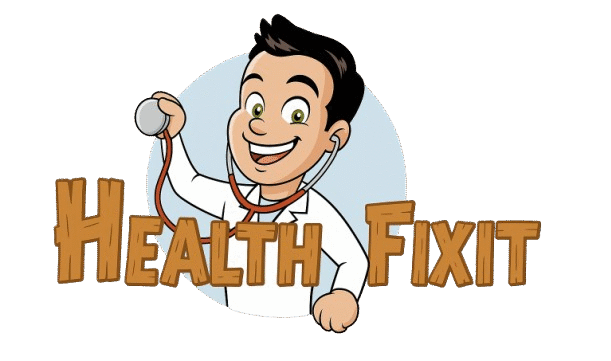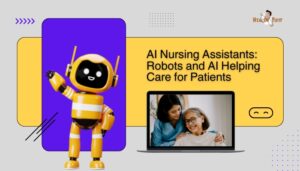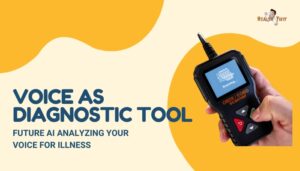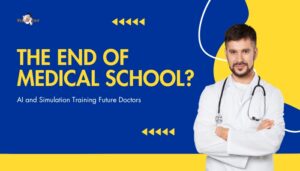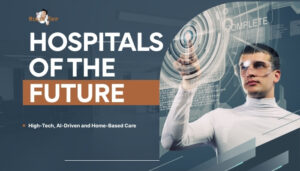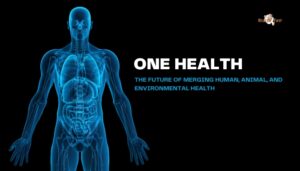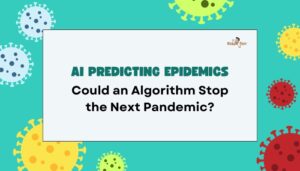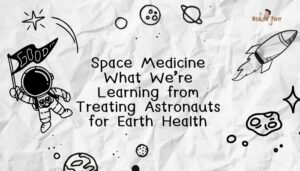Global Health Predictions: Top Health Challenges and Innovations by 2030
Introduction As we approach the end of this decade, global health stands at a pivotal moment. Rapid technological advances, shifts in disease burden, climate impacts, and demographic transitions all converge, shaping the wellness landscape worldwide. By 2030, experts predict surging...
Read MoreAI Nursing Assistants: Robots and AI Helping Care for Patients
Introduction Nurses stand at the frontline of patient care, juggling tasks from routine vitals checks to emotional support. Artificial intelligence (AI) assistants and robotic aides promise to ease the workload, keep an extra eye on patients, and deliver greater efficiency...
Read MoreVoice as a Diagnostic Tool: Future AI Analyzing Your Voice for Illness
Introduction The human voice carries more than just words. Its pitch, tone, rhythm, and timbre can reveal underlying neurological or physiological conditions. Recent advances in AI-based voice analysis tap these subtle cues to screen for diseases ranging from Parkinson’s to...
Read MoreTricorder Devices: Handheld All-in-One Scanners Coming to Real Life?
Introduction Fans of Star Trek’s futuristic “tricorder” recall a small handheld scanner that provided immediate, detailed medical diagnostics on the spot. Decades later, engineers, medical device makers, and AI developers are racing to create real-life equivalents—compact gadgets that measure vital...
Read MoreThe End of Medical School? AI and Simulation Training Future Doctors
Introduction From stethoscopes to scalpels, the tools of medicine have evolved, but the core of medical training—long years of lectures, rotations, and hands-on patient care—has remained more or less the same for generations. However, AI and advanced simulation may soon...
Read MoreHospitals of the Future: High-Tech, AI-Driven and Home-Based Care
Introduction Hospitals have always been cornerstones of modern healthcare. But as medical technology rapidly advances and patient preferences evolve , the hospital of the future is poised to look radically different. From AI-assisted diagnoses and wearable sensors tracking vitals in...
Read MoreOne Health: The Future of Merging Human, Animal, and Environmental Health
Introduction In an interconnected world, human health does not exist in isolation. One Health recognizes that humans, animals, and the environment share a complex web of interactions, and improving health in one domain often benefits the others. This holistic concept...
Read MoreAI Predicting Epidemics: Could an Algorithm Stop the Next Pandemic?
Introduction Disease outbreaks, such as the H1N1 swine flu or COVID-19, can spread rapidly across continents in an interconnected world. Policymakers often scramble to implement travel restrictions, quarantine measures, or contact tracing, but by the time symptoms appear, it may...
Read MoreSpace Medicine: What We’re Learning from Treating Astronauts for Earth Health
Introduction Venturing into space challenges the human body in extraordinary ways: microgravity, cosmic radiation, and confinement all push human physiology to its limits Astronauts develop weakened bones, muscle atrophy, vision problems, and other issues during long missions. Far from being...
Read MoreDesigner Babies: The Debate on Gene-Editing Embryos for Health
Introduction Once purely the stuff of science fiction, “designer babies” – where parents could pick and choose genetic traits for their children – are now entering scientific discourse as a plausible (though highly controversial) future possibility. The key driver is...
Read More